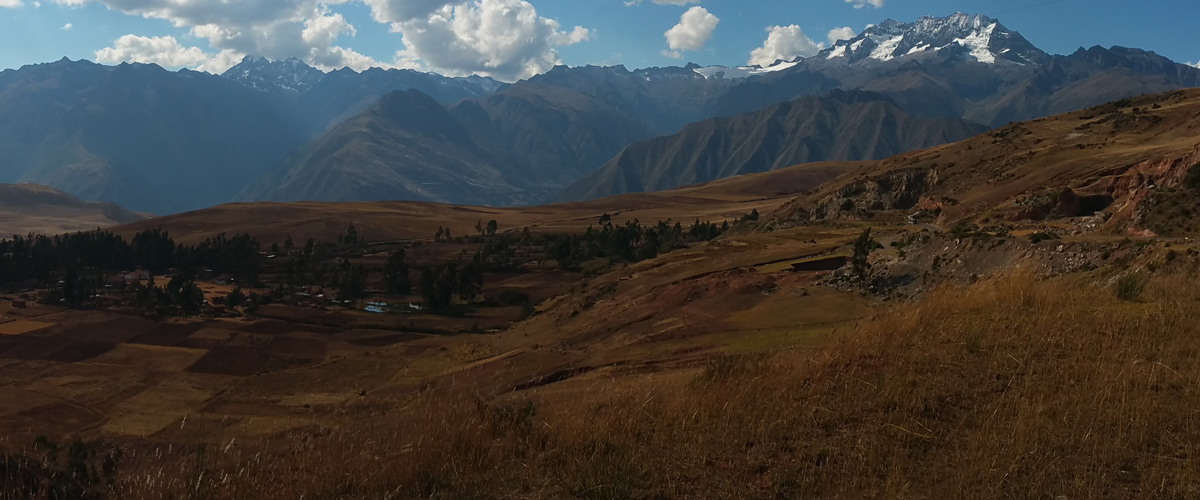
Collective Actions to Improve Agroecological Efficiency of Production Systems
Lead Organization:
Programa de Promocion de la Sustentabilidad y Conocimientos Compartidos PROSUCO
Partner Organizations:
Communities of Chigani Alto, Iquicachi, Cutusuma, Igachi, Villa Anta, and Suramaya and Networks of Research Farmers (NRF within them; municipal governments; Yapuchiris from FUNAPA and Jacha Suyu Pakajaqi organizations; Local Agroclimatic Observers (OLA); communities including Aroma of Oruro; UMSA; PROINPA; Universidad San Francisco; projects YANAPAI and AMIGO Soils and Landscapes, CIZA Schools and Seeds, STATS4SD, and GIS; FAO; RIMISP; Vice Ministry of Civil Defense
Community of Practice:
Duration:
8/2021—8/2024
Overview:
Previous research (Yapuchiris I, II, III) concluded that innovations (Yapuchiris, agroclimatic information, bio-inputs) have the potential to contribute to production improvement and risk management, yet there are not enough to scale up and respond to community transformation challenges. The communities’ logic of social and productive organization, linked to the territory’s environmental management, was cracking over time because of land tenure problems and younger members’ urban migration: issues affecting environmental deterioration and aging. With Covid-19, children and grandchildren returned, giving communities more social life by expanding lists of affiliates yet creating difficulties in food management and right of access to land. This allows for identifying the problem: loss of social and territorial planning, which does not allow for solving, reactivating, and recovering the management of environmental functions and the sustainability of productive systems for efficient food production.
The opportunity exists to develop social research applied to the territory and community organization using two theoretical frameworks: collective actions and agroecological principles. How can families/ collective actions in homogeneous areas mobilize a new form of communal territorial planning and have it be agroecological? The theory of collective actions has been and is applied in different areas.
The FAO TAPE tool based on the 10 elements will be used to evaluate how agroecological the communal territories are. Nicholls & Altieri (2017) propose that collective actions favor the designs of resilient agroecological systems as long as they consider activities that promote participatory governance systems to make decisions and implement strategies at the landscape level.
Grant Aims:
1. Study the collective actions of the communities’ families, organized in homogeneous areas, regarding agroecological management and use of innovations (local and external) to improve management of productive systems.
This is to understand the differentiated and common needs and interests (social, environmental, economic) that motivate families around the sustainable and resilient management of productive systems.
2. Investigate the social and operational dynamics of the communal RAIs and other external collaborators to respond to new demands for research and innovation to solve productive problems (collective and communal).
RAI dynamics have an important contribution in management of knowledge and proven innovations within communities as well as the rupture of paradigms in accessing this knowledge. Demand for the knowledge and services promoted so far is limited. Continue reflecting and supporting their dynamics under the approach of “collective actions and demands.”
3. Study effects of collective actions (developed in homogeneous areas) in communal territorial planning and their contribution to social and productive transformation.
Activities will be oriented to regular spaces for reflection and analysis with local authorities and community assemblies on the results and first objective. Other actors such as the new municipal authorities and technicians as well as allies and external collaborators (from the CoP and Network of networks) will be articulated to reflect and contribute.
Outputs and Outcomes:
- Collective groups from homogeneous areas, under the logic of collective actions and differentiated use of innovations and services, improve efficient management of productive systems for the sustainable and resilient production of food
- Communal agreements to work on the concept of collective actions for homogeneous areas
- Territorial zoning of homogeneous areas to work collective actions with families
- Establish and implement agendas for access and use of innovations and services, developed by Yapuchiris and networks of farmer researchers and external collaborators, to respond to specific problems of homogeneous areas
- Measure and evaluate in a participatory way with communities, the agroecological indicators (starting, process, and final) agreed to see level of changes in efficiency of production systems
- Communal NFR develop innovations and services tailored to collective and communal demands
- Local research and innovation agendas, demanded and agreed, between networks of farmer researchers and external collaborators and between collective groups and communities
- Research and innovations developed and disseminated to collective groups and communities
- Assessment of collective groups and communities on results of research and innovations
- Communities propose new form of territorial planning and vision of social and productive transformation influenced by collective actions of families organized in homogeneous areas
- Evaluation and assessment of results of collective actions
- Communal agreements to plan territories based on experiences of collective actions
- Communal visions of social and productive transformation systematized